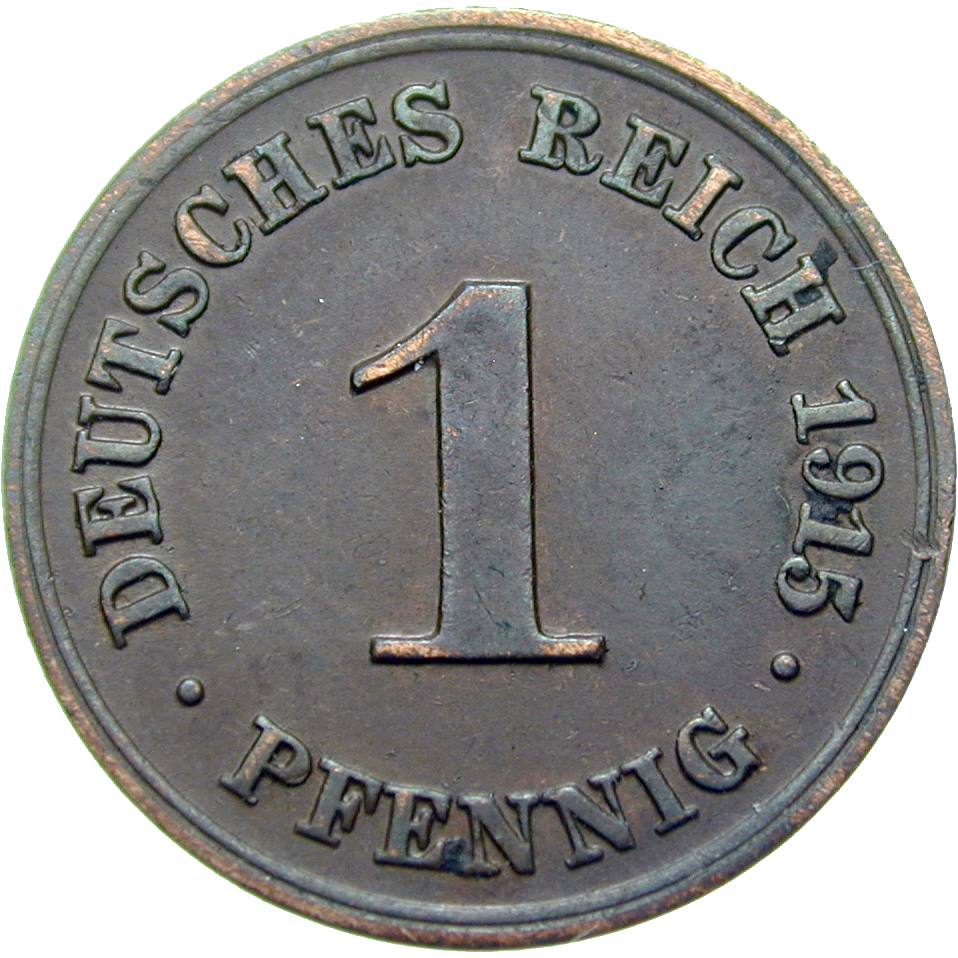Im Jahr 1915 war die deutsche Kriegsmaschinerie bereits ein Jahr in Betrieb (es war die Zeit des Ersten Weltkriegs, bis 1918). Um genug finanzielle Mittel zur Verfügung stellen zu können, war die Deutsche Reichsbank von der Pflicht, das umlaufende Geld durch Goldbestände abzudecken, befreit worden. Damit war der erste Schritt zur grossen Papiergeldinflation getan. Noch aber hatte der Kupferpfennig im täglichen Leben seinen festen Platz. Noch immer galt: wer den Pfennig nicht ehrt, ist die Mark nicht wert. Die Preise für Alltagsgüter waren denn auch entsprechend auf den Pfennig genau angegeben. Mit 22 Pfennigen konnte man sich zum Beispiel einen Liter Bier leisten.
Ausgabejahr
1915 n. Chr.

